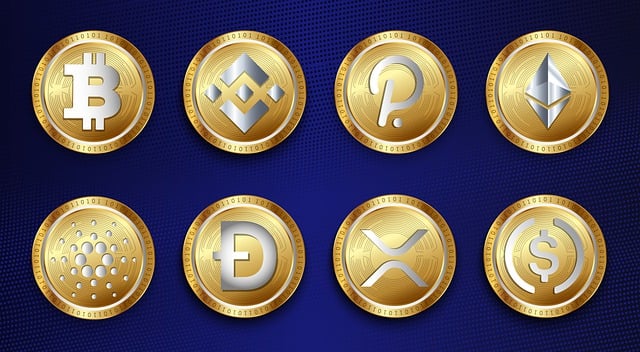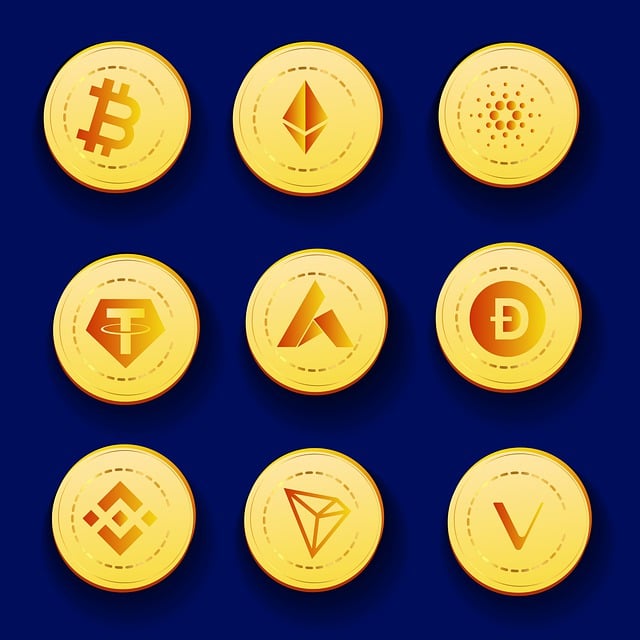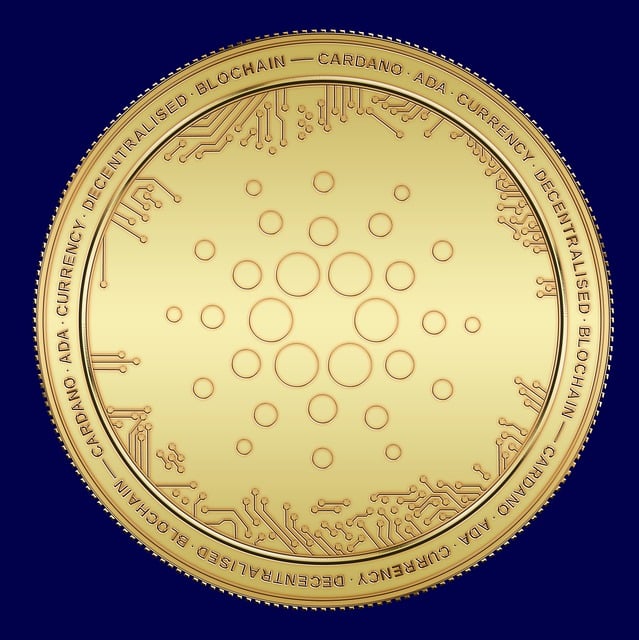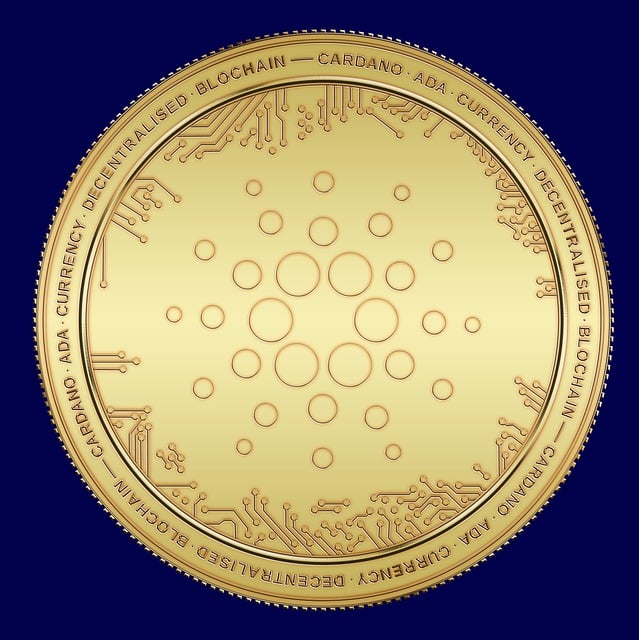
Cardano (ADA) is a blockchain platform gaining traction for its scientific approach prioritizing scalability, security, and sustainability. Its unique proof-of-stake mechanism reduces energy consumption compared to competitive systems. Cardano's layered architecture supports diverse applications from DeFi to NFTs, while its academic rigor aims to be future-proof for the Emerging Internet of Value (IoV). By revolutionizing transactions, asset management, and supply chain tracking, Cardano is poised to disrupt finance, governance, and digital property interactions globally.
“Unveiling Cardano’s pivotal role in shaping the future of the Internet of Value (IoV), this article delves into the revolutionary potential of its unique blockchain technology. From transforming digital assets and smart contracts to pioneering decentralized finance (DeFi) and exploring NFTs, Cardano is reshaping industries. Its impact extends to supply chain management, offering unprecedented transparency. Discover how Cardano’s innovative ecosystem positions it as a game-changer in the emerging IoV landscape, paving the way for a new generation of web experiences.”
- Understanding Cardano and Its Unique Blockchain Technology
- The Concept of the Internet of Value (IoV)
- How Cardano is Transforming Digital Assets and Smart Contracts
- Decentralized Finance (DeFi): A New Frontier for Cardano
- Exploring Non-Fungible Tokens (NFTs) on Cardano
- Cardano's Impact on Supply Chain Management and Transparency
- The Future of Internet of Value: Cardano's Role in Shaping the Next Generation of Web
Understanding Cardano and Its Unique Blockchain Technology

Cardano, often referred to as ADA, is a blockchain platform that has garnered significant attention in the cryptocurrency and decentralized finance space. Its unique selling point lies in its scientific approach to blockchain development, focusing on scalability, security, and sustainability. The Cardano network utilizes a proof-of-stake (PoS) consensus mechanism, which sets it apart from many other cryptocurrencies that rely on energy-intensive proof-of-work systems. This innovation allows Cardano to process transactions quickly and efficiently while maintaining a high level of security.
The platform’s blockchain technology is designed with a layered architecture, comprising several components. This includes the core blockchain, smart contract functionality through its native language, Plutus, and a decentralized application (dApp) layer. This versatility enables Cardano to support a wide range of use cases, from decentralized finance (DeFi) applications to non-fungible tokens (NFTs) and more. With its emphasis on research and academic rigor, Cardano aims to create a robust and future-proof ecosystem for the Emerging Internet of Value.
The Concept of the Internet of Value (IoV)

The Internet of Value, or IoV, is a revolutionary concept that extends beyond the digital realm of the current web. It envisions a network where value, in various forms, can be exchanged and transferred seamlessly across different systems and platforms, much like how data flows in the traditional internet. This emerging ecosystem aims to bridge the gap between the physical and digital worlds, allowing for secure and efficient interactions. At its core, the IoV facilitates the exchange of goods, services, and assets using blockchain technology, with Cardano playing a pivotal role in this new frontier.
Cardano, as a leading blockchain platform, offers a robust infrastructure to support the IoV’s potential. Its advanced smart contract capabilities and focus on scalability ensure that transactions, including complex asset transfers, can be processed quickly and securely. By enabling decentralized applications (dApps) and providing a flexible framework for various use cases, Cardano paves the way for innovative solutions in supply chain management, digital identity verification, and tokenized assets, among others. This platform’s commitment to interoperability also ensures that different IoV systems can communicate and work together seamlessly, fostering a truly interconnected web of value.
How Cardano is Transforming Digital Assets and Smart Contracts

Cardano, a blockchain platform with a focus on security and sustainability, is revolutionizing the way digital assets and smart contracts are perceived and utilized. Unlike some of its competitors, Cardano’s unique approach to proof-of-stake consensus mechanism offers enhanced transaction speeds and significantly lower energy consumption, making it an eco-friendly option for developers building decentralized applications (dApps). This has sparked a surge in interest from both tech enthusiasts and investors looking for a more efficient and ethical alternative to existing blockchain systems.
One of the key aspects where Cardano stands out is its robust smart contract functionality. The platform’s native programming language, Plutus, allows for the creation of sophisticated smart contracts with built-in security features. This enables developers to build decentralized applications that manage digital assets, from tokens and cryptocurrencies to more complex financial instruments, in a secure and reliable manner. As Cardano continues to evolve, its potential to transform various industries, including finance, supply chain management, and governance, becomes increasingly apparent.
Decentralized Finance (DeFi): A New Frontier for Cardano

Cardano, with its focus on scalability and security, is well-positioned to play a significant role in shaping the future of Decentralized Finance (DeFi), a rapidly growing sector within the Emerging Internet of Value. DeFi aims to recreate traditional financial systems on blockchain technology, offering users greater control over their assets without intermediaries like banks.
By leveraging its Proof-of-Stake consensus mechanism and smart contract capabilities, Cardano can facilitate the development of decentralized exchanges, lending platforms, and stablecoins—all key components of a robust DeFi ecosystem. This new frontier for Cardano promises to democratize access to financial services globally, enabling users to participate in the digital economy with greater transparency, security, and efficiency.
Exploring Non-Fungible Tokens (NFTs) on Cardano

Cardano, known for its focus on scalability and sustainability, is also at the forefront of exploring new frontiers in blockchain technology, including Non-Fungible Tokens (NFTs). The platform’s smart contract capabilities enable developers to create unique digital assets that represent ownership of virtual or physical items, from art and collectibles to in-game items and real estate. This opens up a world of possibilities for artists, creators, and collectors who seek to monetize their digital creations in a secure and transparent manner.
Cardano’s unique approach to NFTs, powered by its proof-of-stake consensus mechanism, promises enhanced energy efficiency compared to traditional NFT platforms. By enabling developers to build on its blockchain infrastructure, Cardano fosters innovation in the emerging Internet of Value, where digital assets and their underlying data are securely managed and traded within a decentralized ecosystem.
Cardano's Impact on Supply Chain Management and Transparency

Cardano, with its innovative smart contract platform, is making significant waves in transforming various industries. One area where it’s leaving a notable impact is supply chain management. By implementing Cardano’s blockchain technology, businesses can achieve unprecedented transparency and efficiency throughout their operations. Each step of the process, from sourcing raw materials to delivering finished goods, can be recorded and tracked on the immutable ledger, ensuring accountability and authenticity.
This level of transparency benefits stakeholders across the entire supply chain. Consumers can verify the origin and quality of products, while manufacturers gain insights into inventory levels and logistical details in real-time. This data integrity prevents fraud and counterfeiting, fostering trust among all parties involved. Moreover, Cardano’s decentralized nature eliminates single points of failure, making supply chains more resilient and less susceptible to disruptions.
The Future of Internet of Value: Cardano's Role in Shaping the Next Generation of Web

The future of the Internet of Value (IoV) is poised for a significant shift, and Cardano is at the forefront of this evolution. As the demand for decentralized applications continues to grow, Cardano’s robust platform offers a promising solution to the challenges faced by the IoV ecosystem. Its innovative smart contract language, Plutus, enables developers to build secure and efficient applications with enhanced privacy and flexibility.
Cardano’s unique approach to scalability, security, and sustainability positions it as a key player in shaping the next generation of the web. By focusing on computational efficiency and energy-efficient consensus mechanisms, Cardano aims to support a vast array of use cases, from decentralized finance (DeFi) and non-fungible tokens (NFTs) to supply chain management and social platforms. With its growing community and expanding ecosystem, Cardano is well-placed to revolutionize the way we interact with digital value in the years to come.
Cardano is emerging as a pivotal player in the evolution of the Internet of Value (IoV), offering innovative solutions and expanding the potential of blockchain technology. Its advanced smart contract capabilities, coupled with a focus on scalability and sustainability, are driving new use cases across various sectors, from decentralized finance (DeFi) to supply chain management. As we look ahead, Cardano’s role in shaping the next generation of the web is poised to revolutionize digital interactions, enhancing transparency and efficiency for users worldwide.

